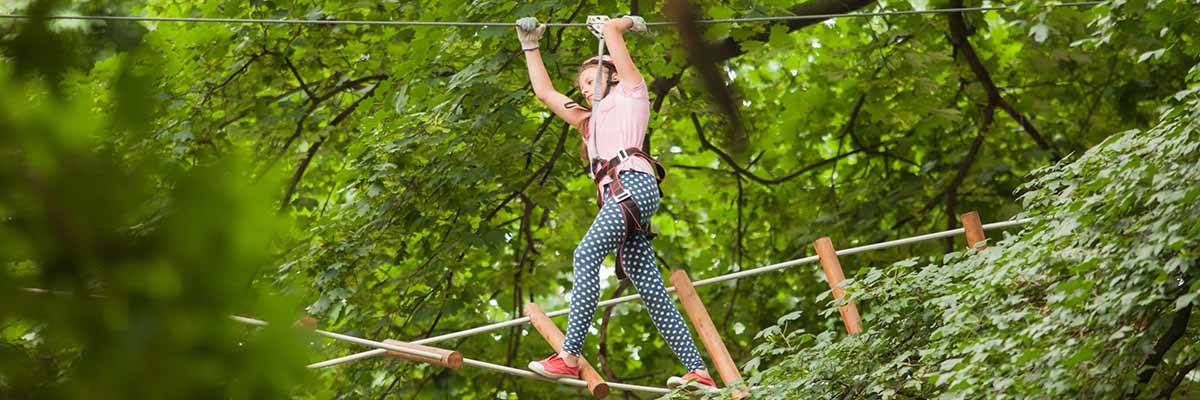
“There’s a hundred and four days of summer vacation, and school comes along just to end it!
So the annual problem with our generation, is finding a good way to spend it…”
-Opening lyric of “Phineas and Ferb” theme song
Summer comes along every year, and every year parents have to decide what they’re going to do with their children. Some families have one parent who’s able to stay home with kids, some grandparents are able to watch kids during the long summer days, and some kids are able to go visit aunts and uncles and spend time with their cousins during summertime. No matter where they go, though, kids need to stay occupied. Even though summer has just passed, and kids are barely into the rhythm of the new school year, it’s not too early to think about next summer. In fact, it might be the perfect time, especially if you’re a parent with a child who’s having a hard time getting back in the swing of things. As many parents, teachers, and school administrators already know from years of experience, statistics now prove that over the summer, children can lose more than two-months’ worth of the education they gain during the school year.[1] It’s becoming more and more clear that no matter where kids end up—in summer school, with grandparents or at home—it’s essential to keep kid’s minds active and engaged during the summer. Over the past ten years, research has revealed that it’s not necessarily summer school or rigorous academic programs that can keep kids from backsliding: it’s summer camp.[2]
Benefits of Summer Camp
The American Camp Association (ACA), the most reputable camp accreditation organization in the U.S., whose website is an excellent resource for parents, students and school officials wishing to learn everything there is to know about summer camps, released a comprehensive report in 2005 entitled Directions: Youth Development Outcomes of the Camp Experience. This report, which was the largest of its kind ever attempted, included the input of over 80 summer camps and thousands of families. The ACA concluded that summer camp has the following lasting effects on kids:
- Campers Develop Positive Identity Traits: Living with an entirely new peer group and learning to get along with people from different backgrounds, combined with spending time away from parents results in increased levels of self-confidence and independence.
- Campers Increase Social Skills: Kids who go to summer camp develop leadership skills, friend-making skills, show increased levels of comfort in new social situations and learn to form lasting, positive peer relationships.
- Campers Show Increased Physical and Mental Skills: Through outdoor activities and adventure sports, kids learn to try new things, push their limits, and discover physical capabilities they never knew they had. Through exposure to issues of environmental awareness and close contact with nature, kids learn to push their mental capacity by gaining a greater understanding of ecosystems and basic wildlife biology.
- Campers Develop Positive Values: Through the experience of an open, inclusive environment in which communication with peers and counselors is vital to smooth day-to-day functioning, kids learn to see and understand the consequences of their actions. Because most camps are tight-knit communities, and kids receive immediate feedback on their actions from counselors and peers, they are able to quickly create a set of values based on direct personal knowledge. Kids with a camp experience learn to think about how their actions affect others, and are able to carry these fundamental lessons in empathy with them back to their home lives.
Tying It All Together: Soft Skills Translate to Real Gains
The ACA report shows that kids develop all kinds of positive personal traits during their time at summer camps, but what does all of that have to do with school? “Think of it as cross-training for the brain,” says Sarah Herman, former Director of Interlocken Summer Camp in New Hampshire, and current Head of School at Our Sister’s School in New Bedford, Massachusetts. “The skills that kids acquire during summer camp, whether they are soft, social skills like how to make new friends or lead an evening meeting, or hard, outdoor sports type skills like how to paddle and roll a kayak—the process of learning these new skills keeps their minds active and engaged. When they return for school in the fall, their minds are primed to learn new information on a whole new level.”
For parents already thinking about what to do with their kids next summer, a sleep-away camp should be considered a real option—their kids might grow in ways they never imagined possible. Finally, parents who are concerned about the cost of summer camps should be aware of these important facts: over 9,500 camps in the U.S. are operated by non-profit groups; 90 percent of ACA accredited camps in the U.S. have robust financial aid programs; and, last year, in order to help kids have a rewarding summer camp experience, over one million families were offered economic assistance.
Footnotes
[1] Reading is Fundamental. “Primer on Summer Learning Loss” http://www.rif.org/us/literacy-resources/articles/primer-on-summer-reading-loss.htm
[2] Our Kids: The Trusted Choice. “Learning Benefits of Summer Camp: Further your child’s education at kids’ camp” http://www.ourkids.net/camp/learning-benefits-of-summer-camp.php






